As you well know, keyword research is the foundation upon which successful campaigns are built.
Your choice of keywords can either make or break you.
By choosing the right keywords, you can attract targeted organic traffic to your website and increase your chances of ranking higher in search engine results.
While choosing the wrong keywords will condemn your page to oblivion never to be seen.
In this comprehensive guide, we will walk you through the essential steps and best practices for choosing keywords that will propel your SEO efforts to new heights.
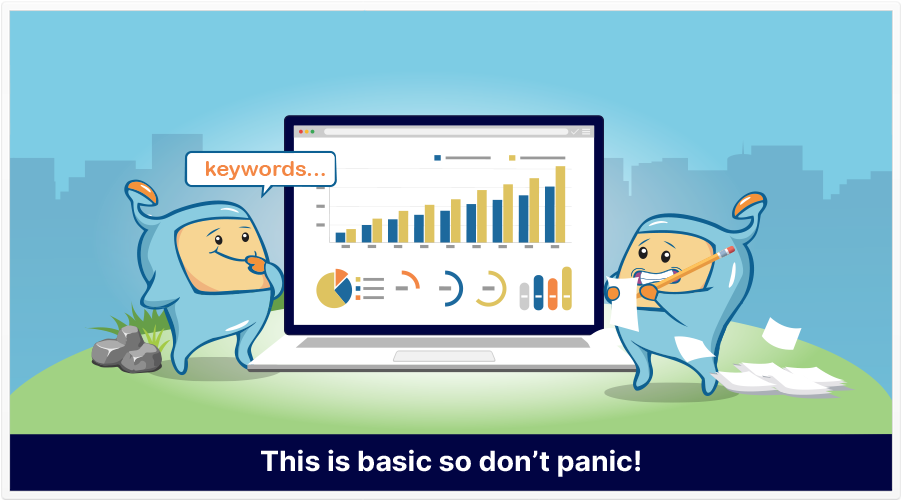
Here is what you will read in this article:
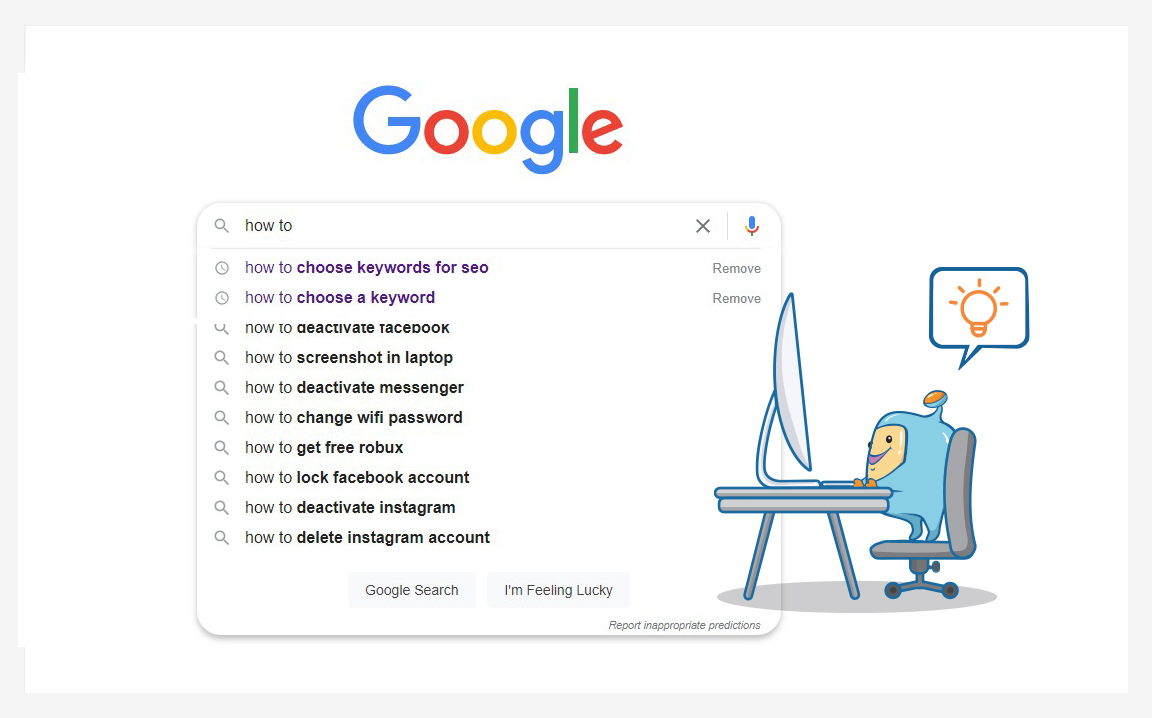
Keywords are words or phrases that encapsulate the main topics, themes, or ideas within a piece of content or the content of a website.
In the context of SEO (Search Engine Optimization), keywords are the terms that people use when conducting searches on search engines like Google, Bing, or Yahoo.
Keywords are crucial in SEO because they act as a bridge between what users are searching for and the content or information that websites provide.
When a website incorporates relevant keywords into its content, it increases the chances of appearing in search engine results pages (SERPs) when users search for those keywords.
Keywords can vary in length and specificity.
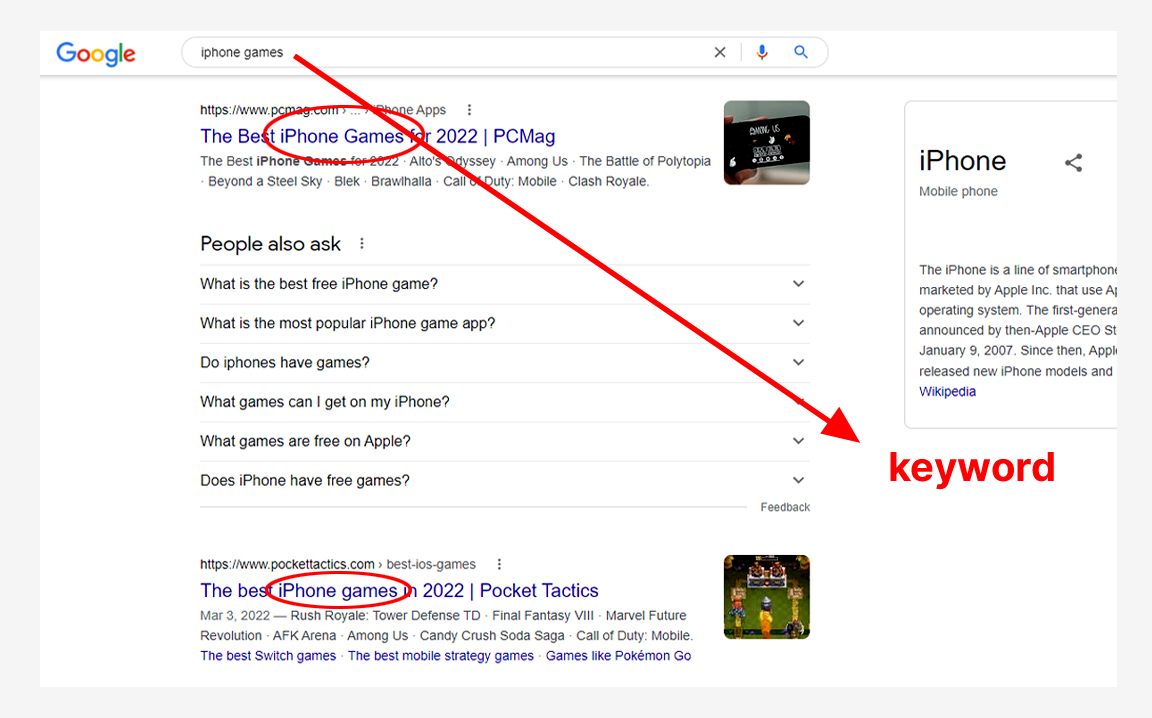
Some keywords are short-tail, consisting of one or two words, such as "shoes" or "digital marketing."
These tend to have higher search volumes but also higher competition.
Long-tail keywords, on the other hand, are longer and more specific phrases, like "best running shoes for flat feet" or "affordable digital marketing services."
Long-tail keywords often have lower search volumes but higher conversion rates because they target a more specific audience with a clear intent.
When selecting keywords for SEO, it's important to consider factors such as search volume, competition, relevance to the target audience, and user intent.
Keyword research tools, such as Google Keyword Planner or SEMrush, can help identify popular keywords, their search volumes, and competition levels, enabling website owners to make informed decisions about which keywords to target.
By incorporating relevant and targeted keywords into their content, website owners can improve their visibility in search results and attract organic traffic from users actively searching for information or solutions related to their keywords.
Effective keyword usage helps search engines understand the relevance and context of a webpage, increasing its chances of ranking higher in SERPs and reaching the intended audience.
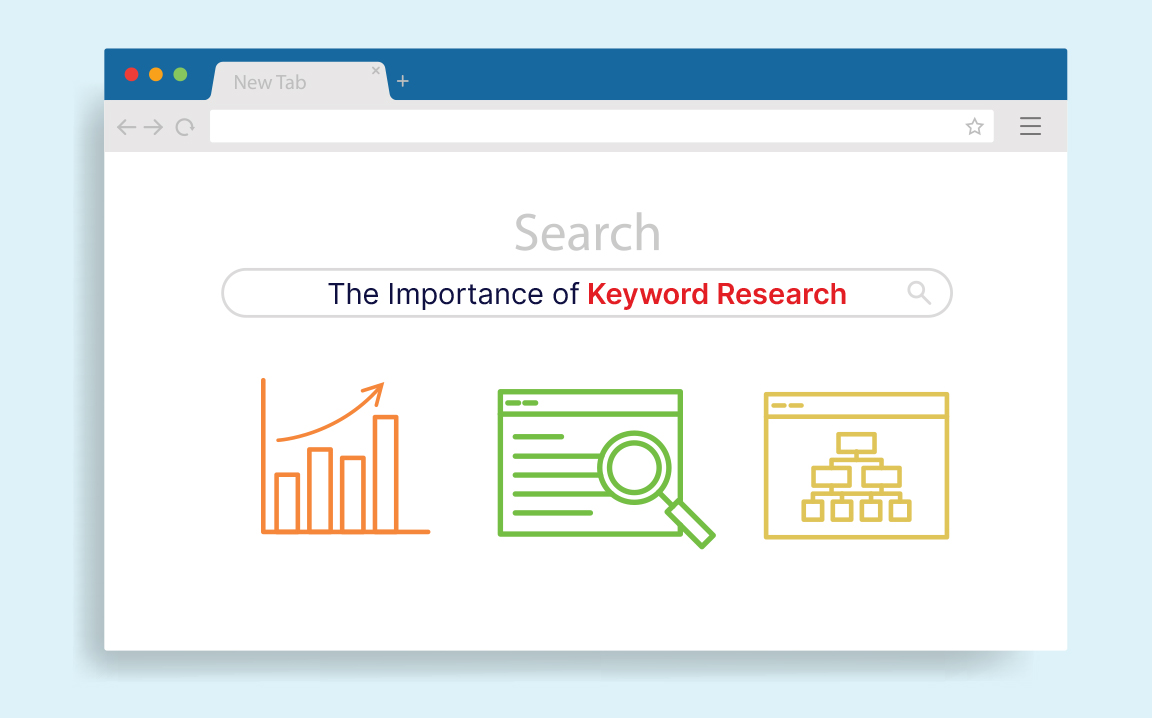
Keyword research is an essential aspect of any successful SEO strategy.
It plays a crucial role in optimizing a website's visibility and attracting targeted organic traffic.
Here are some specific reasons why keyword research is important:

Keyword research provides valuable insights into the language and terms that potential customers use when searching for products, services, or information online.
By understanding customer intent through keyword research, businesses can align their content and offerings with what their target audience is actively seeking.
Keyword research helps in developing a well-rounded content strategy.
By identifying relevant keywords, businesses can create content that directly addresses the interests and needs of their target audience.
This approach increases the likelihood of attracting qualified visitors to the website who are more likely to engage, convert, or make a purchase.

By targeting keywords with high search volumes and low competition, businesses can increase their organic traffic from search engines.
Appearing in the top search results for relevant keywords allows websites to gain visibility and attract visitors who are actively searching for information or solutions related to their offerings.
Choosing the right keywords is not only about driving traffic but also about attracting the right kind of traffic that is more likely to convert.
By selecting keywords with commercial intent or targeting long-tail keywords that align with specific customer needs, businesses can improve their conversion rates and generate more leads or sales.
Keyword research provides insights into emerging trends and shifting customer preferences.
It allows businesses to stay updated with the latest industry developments, adapt their content strategy, and align their offerings with evolving market demands.

If your company possesses valuable resources that cater to the needs of business professionals, you have the opportunity to fulfill those needs and drive them towards taking action, progressing through the buyer journey from initial awareness to making a purchase.
By studying keywords and understanding their popularity, search volume, and general intent, you can effectively address the most pressing questions and concerns of your target audience.
This enables you to provide targeted content that answers their queries and delivers the information they are actively seeking.
Keyword research helps businesses understand their competitive landscape.
By analyzing the keywords their competitors are targeting, businesses can identify gaps, untapped opportunities, and unique selling propositions that can give them a competitive edge.
It allows businesses to differentiate themselves and capture market share by optimizing their content for keywords that their competitors may have overlooked.
The distinction between keywords and topics holds great significance.
While the landscape of SEO has evolved over the years, understanding the relationship between keywords and topics remains essential for optimizing your content effectively.
Traditionally, keywords were the primary focus when it came to optimizing content for search engines.
Businesses would identify specific keywords they wanted to rank for and would incorporate them strategically into their website's content.
However, search engine algorithms have become more sophisticated, and SEO practices have evolved accordingly.
Keywords: The Building Blocks of Search
Keywords, often consisting of one or more words, represent the specific terms that individuals use when conducting searches on search engines.
They encapsulate the core essence of what users are seeking information about.
Keywords play a crucial role in determining the relevance of a webpage to a search query and are still a fundamental component of SEO.
Topics: Embracing a Broader Perspective
Topics, on the other hand, encompass a wider range of content and are more comprehensive in nature.
A topic revolves around a particular subject or theme that encompasses multiple related keywords.
It involves a more holistic approach to content creation and optimization.
Rather than focusing solely on individual keywords, topics consider the overall context and intent behind a user's search.
By creating comprehensive, in-depth content that covers various aspects of a specific topic, you can provide a more valuable and enriching experience for your audience.
The Role of User Intent
Understanding user intent is a critical factor when distinguishing between keywords and topics.
User intent refers to the underlying motivation or purpose behind a search query.
It can be classified into several categories, such as informational, navigational, or transactional intent.
Keywords are often associated with transactional intent, where users are actively seeking to make a purchase or engage in a specific action.
These keywords are typically more specific and have a higher commercial value.
On the other hand, topics are more aligned with informational intent.
They focus on providing comprehensive information, answering questions, and addressing the informational needs of users.
Topics cater to users who are seeking knowledge, advice, or guidance related to a specific subject.
Striking a Balance
While topics have gained prominence in SEO strategies, keywords still play a vital role.
Keywords serve as the building blocks that connect your content to user queries.
They provide a framework for understanding user intent and optimizing your content accordingly.
To strike a balance between keywords and topics, it's crucial to identify relevant keywords within your chosen topic.
These keywords act as the bridge between your content and the user's search query, enabling search engines to understand the relevance of your content.
Keyword research forms the foundation of an effective SEO strategy.
By understanding the key elements of keyword research, you can identify the right keywords to target, optimize your content, and increase your chances of ranking higher in search engine results.
Let's explore the essential elements of keyword research and their significance in driving organic traffic to your website:
When selecting keywords, relevance is paramount.
It involves choosing terms and phrases that align with your business, products, or services.
Relevance goes beyond merely picking keywords related to your industry; it's about including the essential terms and themes within your content.
By demonstrating expertise and providing comprehensive information, you can show search engines that your content is valuable and relevant to users' search queries.
Keyword authority relates to the perceived credibility and expertise of a website in relation to specific keywords.
Search engines consider authoritative sources as more reliable and trustworthy.
To establish keyword authority, it's crucial to create high-quality, informative content and promote it to gain social signals and backlinks.
By becoming an industry authority, you enhance your chances of ranking higher for relevant keywords and attracting organic traffic to your site.
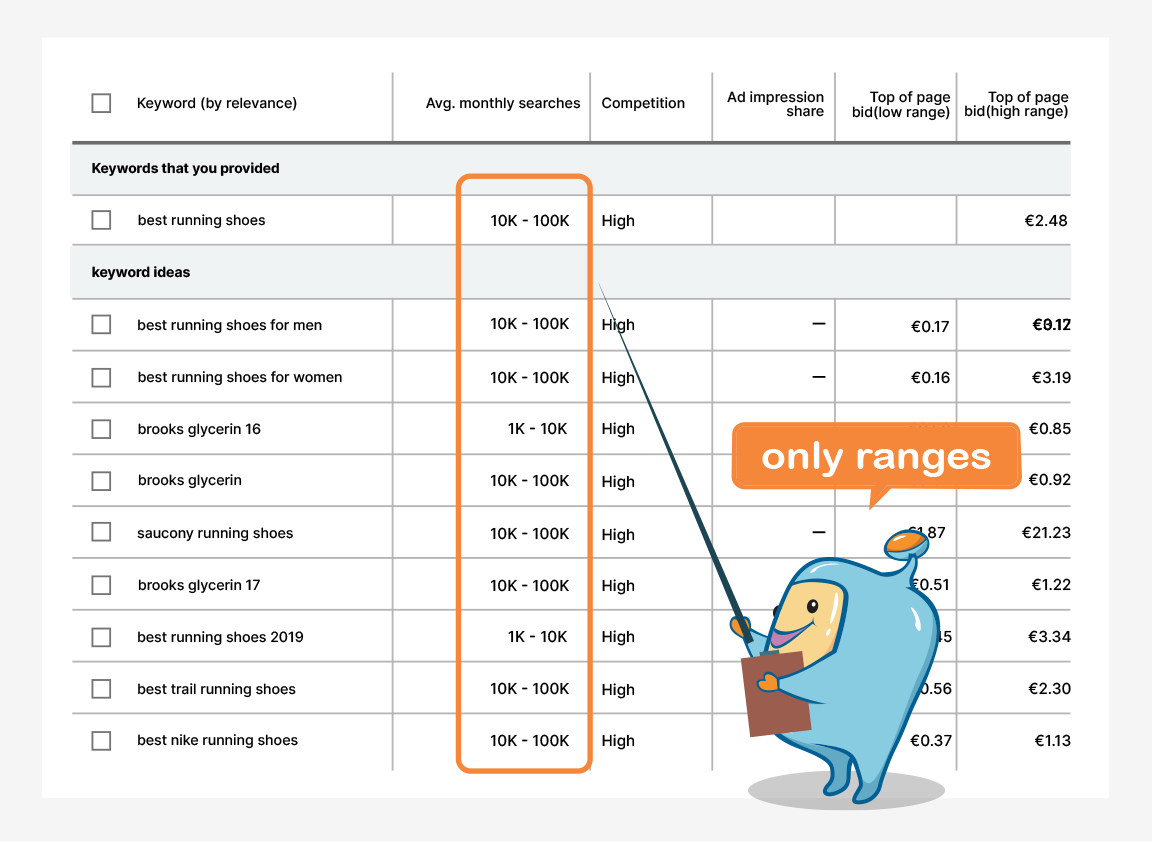
Keyword volume refers to the number of searches a keyword receives within a specific period, usually measured monthly.
It's essential to consider the search volume of keywords to understand their popularity and potential traffic impact.
While high-volume keywords may seem attractive, they are often more competitive.
Balancing keyword volume with relevance allows you to target keywords that have a reasonable search volume while aligning with your content and target audience.
Keyword difficulty refers to the level of competition for a particular keyword.
It indicates how challenging it is to rank for that keyword in search engine results.
Analyzing keyword difficulty helps you assess the feasibility of targeting specific keywords.
Highly competitive keywords may require more time and effort to rank for, whereas targeting less competitive keywords can offer quicker results.
Finding the right balance between keyword relevance, volume, and difficulty is crucial for optimizing your content effectively.
Choosing the right keywords is vital for driving targeted traffic to your website and improving your search engine optimization (SEO) efforts.
More than 50% of consumers rely on Google to research their purchases before making a decision.
These search queries or keywords play a crucial role in helping search engines find and display relevant results.
It's important to note that if your website doesn't rank on the first page of search results, you may miss out on a significant number of potential visitors.
By employing effective keyword selection strategies, you can enhance your search visibility and attract the right audience to your content.
Here are some valuable tips to consider when choosing keywords for SEO:
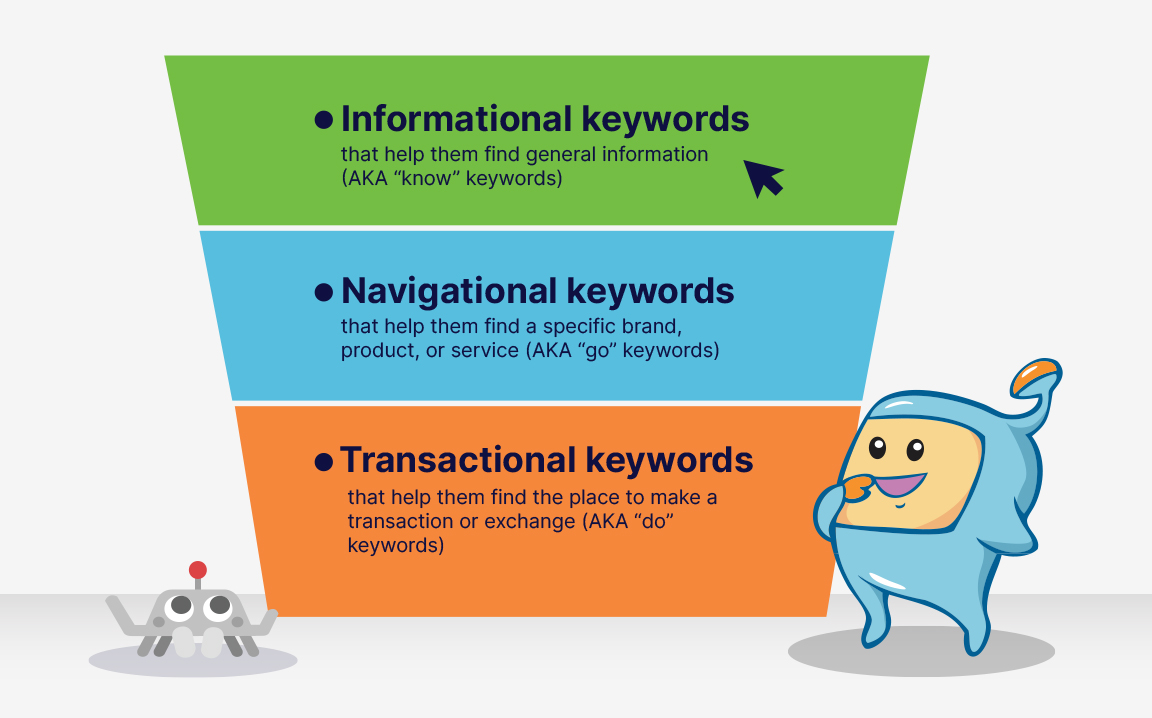
Analyzing search intent is a crucial aspect of keyword research and SEO strategy.
By understanding the intent behind a user's search query, you can better align your content with their needs and deliver more relevant results.
Search intent can be classified into different types, each indicating a specific purpose or goal of the searcher.
Let's explore these types in more detail:
This type of search intent is driven by users seeking information or answers to specific questions.
They are looking for educational content, explanations, tutorials, or research material.
Understanding informational queries allows you to create content that provides valuable insights, addresses common queries, and positions you as an authoritative source of information within your industry.
Navigational intent is when users are searching for a specific website or online destination.
They already have a destination in mind and are using search engines to find the easiest or most direct route to that destination.
For example, someone searching for "Facebook" is likely looking to access the Facebook website.
Optimizing your website for navigational queries can ensure that users can easily find and access your specific webpages or brand.
Commercial intent signals that users are in the consideration or purchase stage of the buyer's journey.
They are looking for products or services and might be comparing options, reading reviews, or looking for the best deals.
Commercial queries often include terms like "best," "reviews," "compare," or "buy."
By understanding commercial intent, you can tailor your content to target potential customers, showcase your products or services, and provide the information they need to make informed purchasing decisions.
By analyzing search intent and its types, you gain valuable insights into the motivations and needs of your target audience.
This knowledge allows you to create content that aligns with their search intent, addresses their specific queries, and guides them through their customer journey.
Remember to optimize your content and landing pages accordingly, providing the information, answers, and solutions that users are seeking based on their search intent.
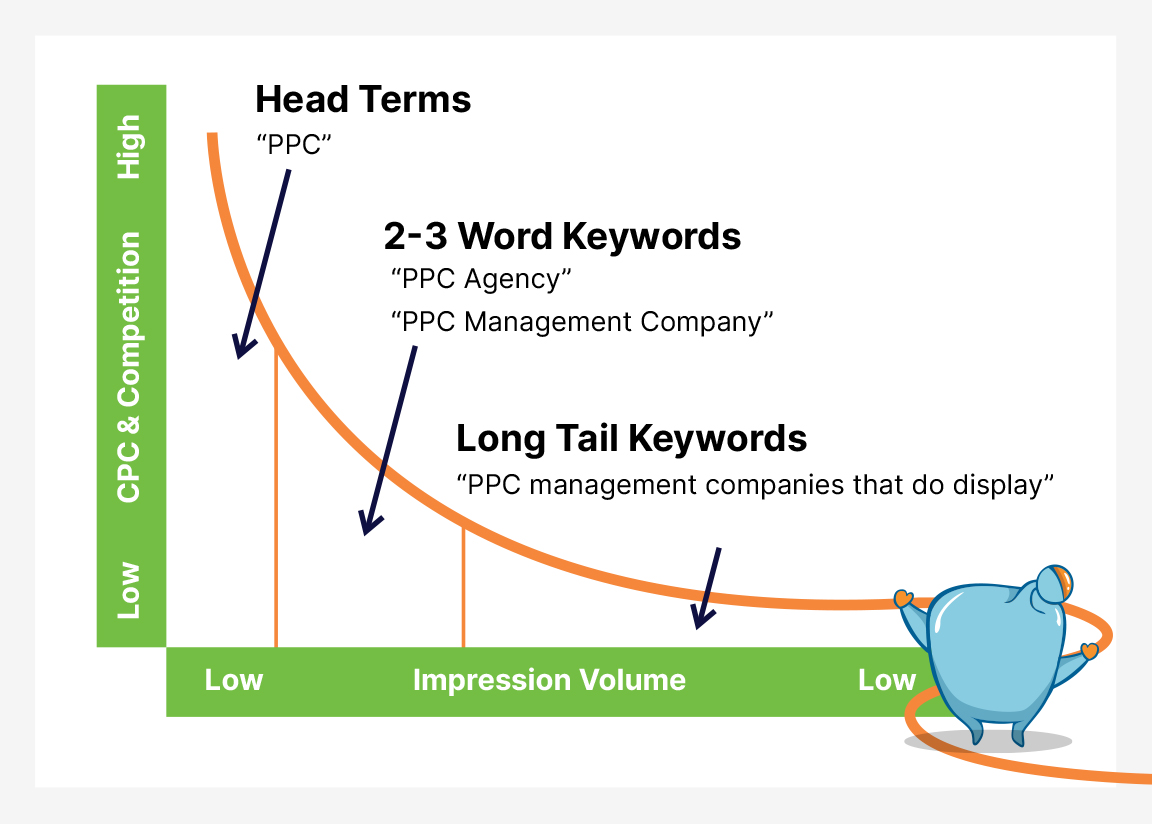
Understanding keyword types is essential for effective keyword research and optimization.
Different types of keywords have distinct characteristics and serve various purposes in your SEO strategy.
Let's delve deeper into the three main types of keywords:
Head keywords, also known as broad keywords, are short and general terms that usually consist of one or two words.
They have high search volumes and competition.
For example, "shoes" or "digital marketing."
While ranking for head keywords can bring a significant amount of traffic, they are highly competitive and may not always convert well.
It's important to use head keywords strategically and focus on long-tail keywords for better targeting.
Body keywords are slightly longer and more specific phrases that usually consist of two to three words.
They have moderate search volumes and competition.
These keywords narrow down the focus and provide more context.
For example, "running shoes for women" or "social media marketing strategies."
Body keywords strike a balance between broad reach and specificity, making them valuable for targeting a specific audience and driving relevant traffic to your website.
Long-tail keywords are longer, more specific phrases that contain three or more words.
They have lower search volumes but are highly targeted and have less competition.
Long-tail keywords often indicate a user's specific intent and are more likely to convert into leads or sales.
For example, "best running shoes for trail running" or "how to create a social media marketing plan."
Focusing on long-tail keywords allows you to capture highly relevant and motivated audiences, resulting in higher conversion rates.
When selecting keywords, it's crucial to consider the balance between search volume, competition, and relevance to your target audience.
While head keywords may seem appealing due to their high search volumes, they are often more competitive and less targeted.
Body keywords strike a balance between reach and specificity, while long-tail keywords offer the highest level of targeting and potential for conversion.
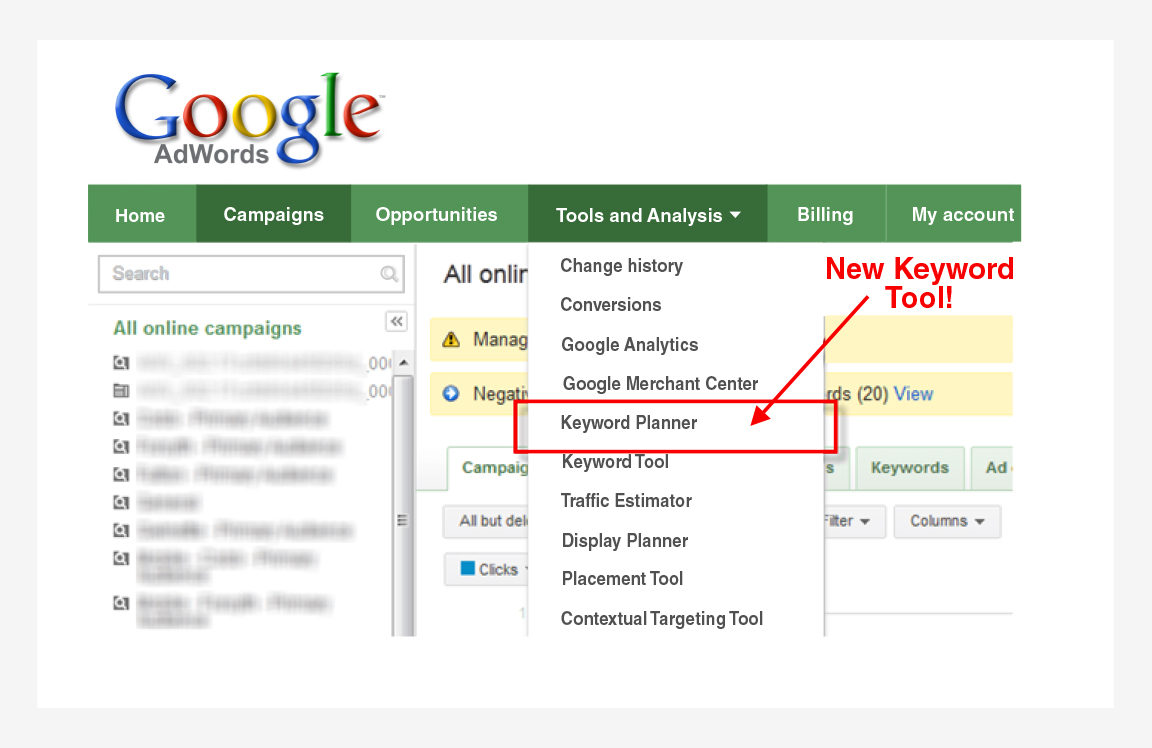
Keyword Planner Tools are essential for conducting effective keyword research and optimizing your SEO strategy.
Various keyword research tools are available to streamline and enhance your keyword selection process.
Tools like Google Keyword Planner, Semrush, Ahrefs, and Moz Keyword Explorer offer valuable data and insights to aid your research.
Leveraging these resources can save time and provide a deeper understanding of keyword performance and trends.
Let's explore some tips for using these tools:
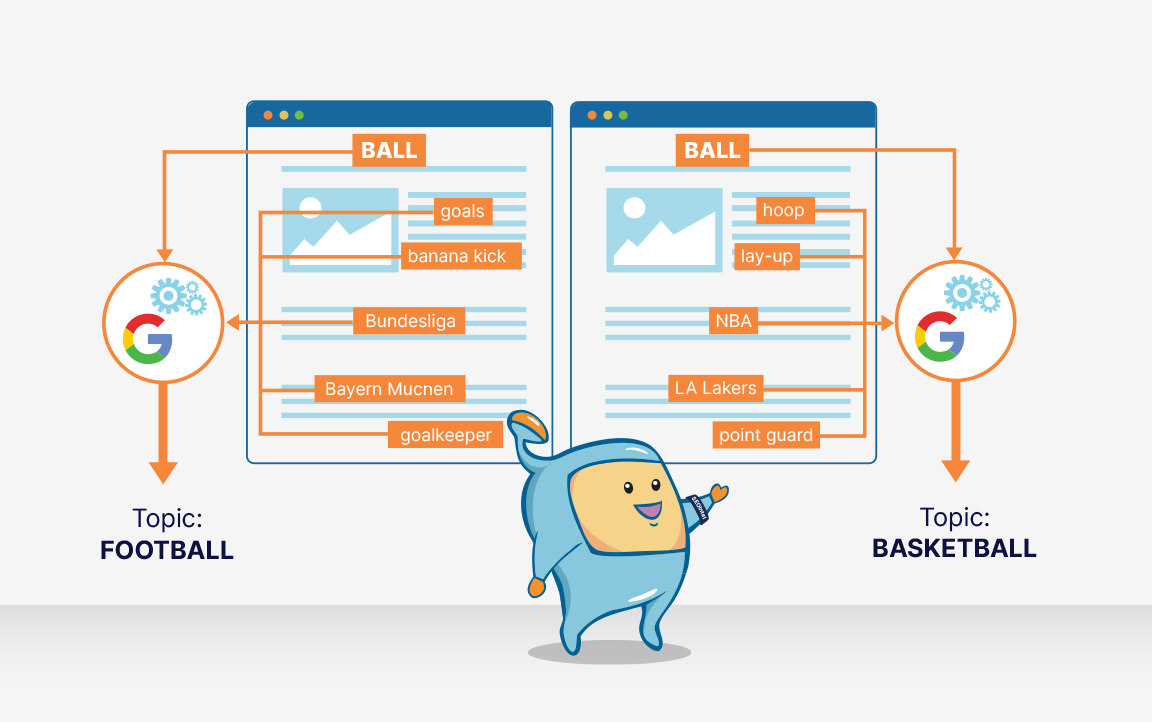
Refining your keywords with LSI (Latent Semantic Indexing) is an important aspect of effective keyword research.
LSI allows you to discover related keywords and phrases that are semantically connected to your primary keywords.
By incorporating LSI keywords into your content, you can enhance its relevance and improve your chances of ranking higher in search engine results.
LSI helps search engines understand the context and meaning of your content by analyzing the relationship between words and identifying patterns.
It enables search engines to provide more accurate and relevant search results to users.
When you refine your keywords using LSI, you expand your keyword list and cover a broader range of terms that are related to your primary topic.
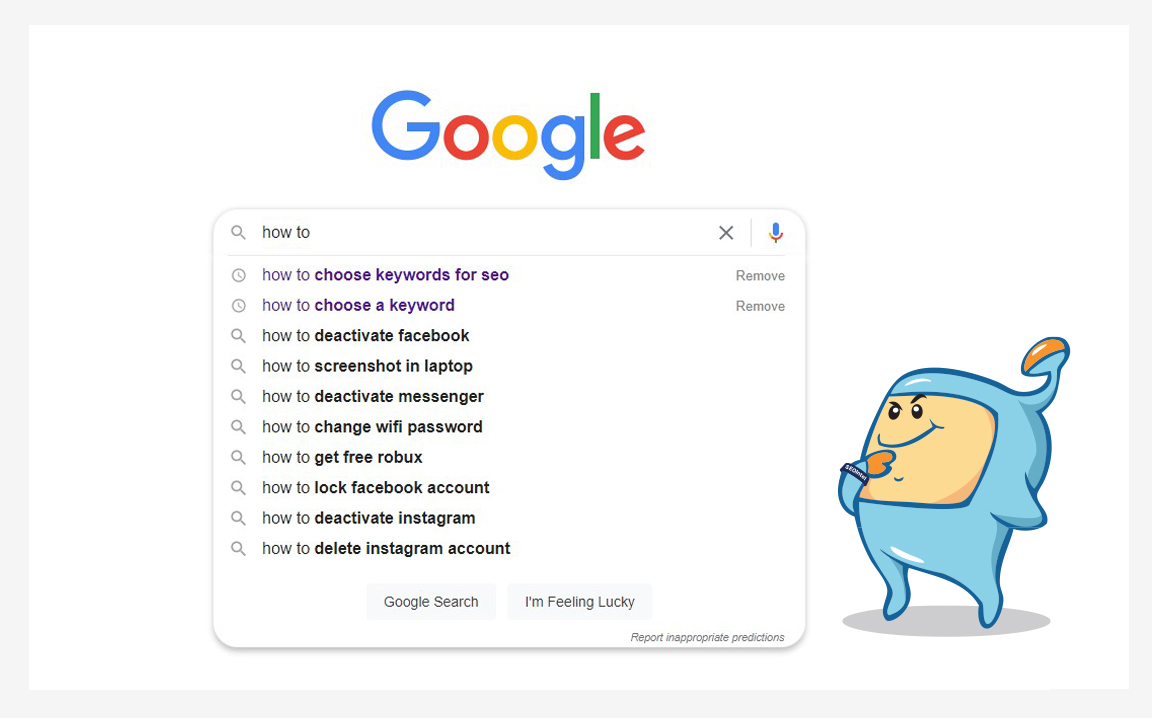
Let's give it a try. Open up Google and start typing a sentence into the search bar.
As you type, Google's autocomplete feature will display suggested results based on your search terms.
However, as you continue typing, you will notice that the suggested phrases may change.
This happens because Google constantly adapts to your expanding long-tail search, uncovering new possibilities and refining its suggestions based on the context of your query.
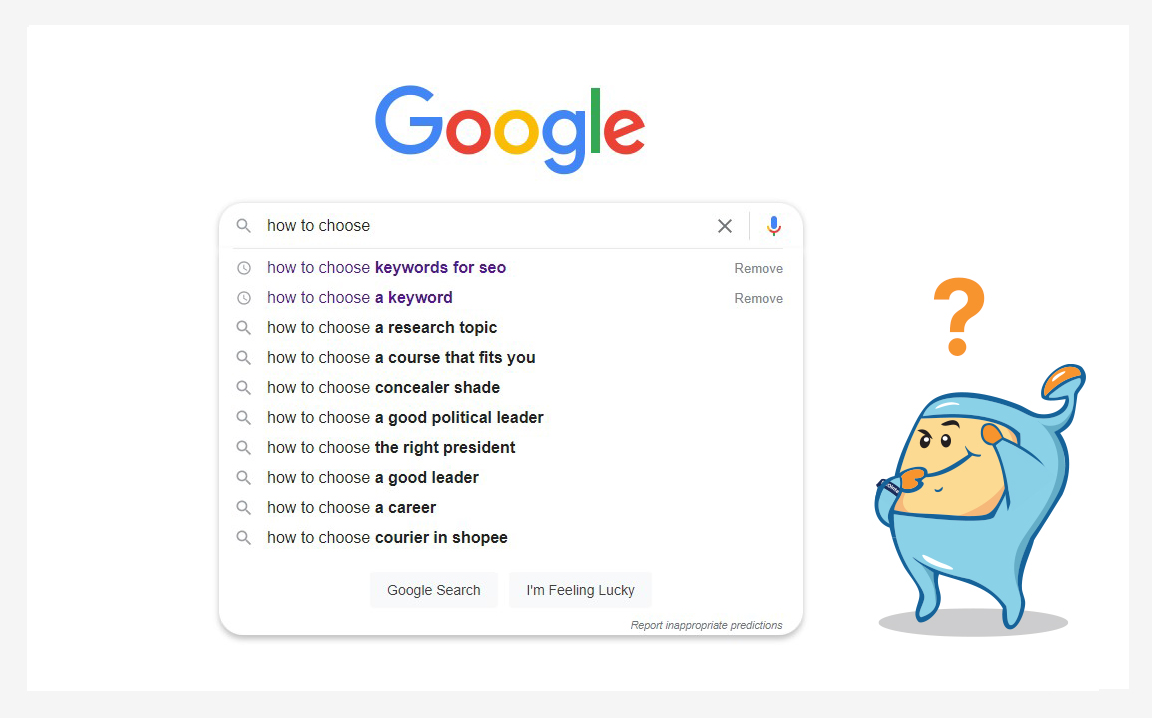
At the bottom of the search results page, you will also find related searches that are relevant to your query.
To further refine your keyword list, pay attention to these related searches and consider incorporating them into your strategy.
These related words have been identified as significant by Google, indicating that they are closely associated with the topic you are searching for.
Taking advantage of these related terms can provide valuable insights and help you optimize your content for better visibility and relevance.
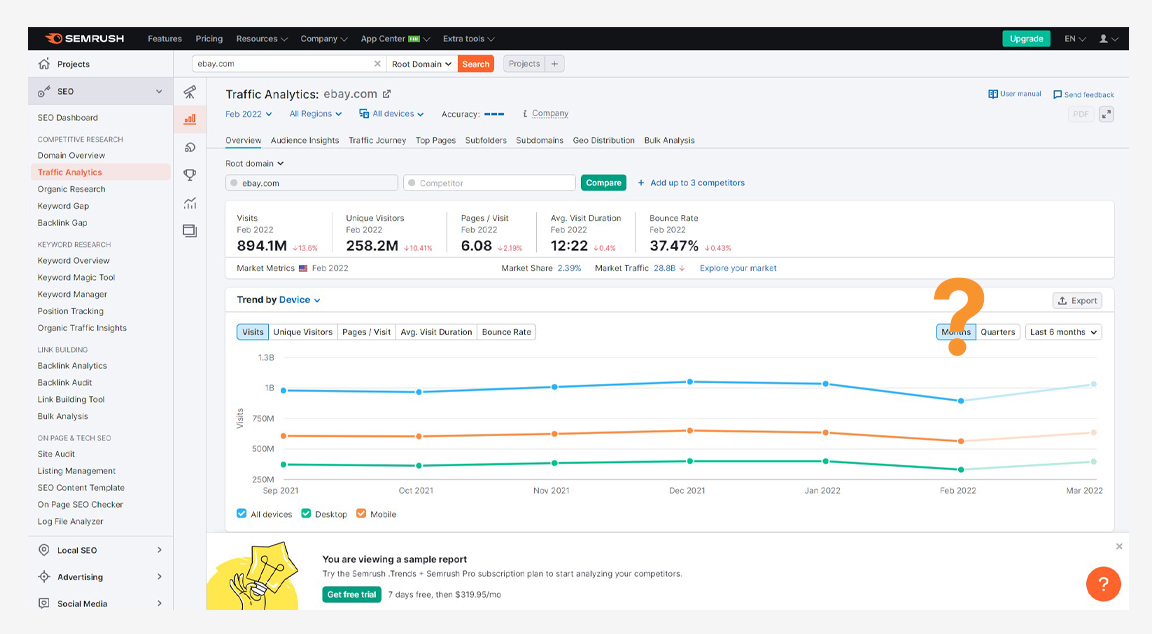
Understanding your competition is crucial in any SEO strategy.
Keyword Planner Tools offer competitive analysis features that allow you to analyze the keywords your competitors are targeting, their search volumes, and their rankings.
By evaluating competitor keywords, you can gain valuable insights into their strategies and identify opportunities for improvement.
This analysis helps you refine your own keyword targeting, identify untapped keyword niches, and differentiate your content from competitors.
Keywords and media assets, such as images and videos, go hand in hand when optimizing your website for search engines.
Keyword Planner Tools assist in selecting appropriate keywords that align with your media assets.
For example, you can identify keywords that are relevant to specific images or videos on your website.
By optimizing your media assets with relevant keywords, such as alt text or file names, you enhance their visibility in search engine image/video results, driving more organic traffic to your website.
Keyword Planner Tools also help you optimize your landing pages by aligning them with your chosen keywords.
When selecting keywords, it's important to consider the landing page that you want to drive traffic to.
Keyword Planner Tools provide insights into keyword relevancy and search volume, allowing you to choose keywords that are highly relevant to your landing page content.
By optimizing your landing page with targeted keywords in page titles, headers, meta descriptions, and throughout the content, you can improve its visibility in search results and attract more qualified traffic.
Choosing the right keywords is a fundamental aspect of successful SEO.
By conducting thorough keyword research, understanding search intent, and optimizing your content strategically, you can position your website to attract targeted organic traffic and achieve higher search engine rankings.
With the help of reliable keyword research tools and continuous monitoring and refinement, you can stay ahead of the curve and propel your SEO efforts to new heights.